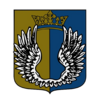Alcoalitania (Pacifica): Difference between revisions
No edit summary |
mNo edit summary |
||
| Line 1: | Line 1: | ||
{{Infobox country|name=Alcoalitania|motto=Glory's trail, in unity's hail, we prevail!|capital=Cintralia|religion=Islam, Christianity, Judaism|demonym=Coalitanian (s) Coalitanians (p) Coalitanian (adj.)|government_type=Single-party democracy|leader_title1=President|leader_name1=Dawod Durant|type_house1=Single house|population_estimate=21,239,596 people|image_flag=[[File:Alcoalitania.png|150px|center|Flag]]|image_coat=[[File:Coalitanian COA.png|100px|center]]|national_languages=C'ao, Austral|house1=The People's Union Senate|population_estimate_year=2024|GDP_nominal=2.14 trillion Coalitanian Dollars|GDP_nominal_per_capita=52,938 Coalitanian Dollars|HDI=0.854|currency=Coalitanian Dollar|currency_code=C$|drives_on=Left|calling_code=+75|flag_caption=Coalitanian National Flag (2007 - Present)|largest_city=Cintralia|time_zone=UTC+2|date_start=1890|leader_title2=Political Party|leader_name2=[[The Coalitanian Nationalist Party (Pacifica)]]|Gini=19.8|native_name=(Lou Demokratik Republik snere Alcoalitania)|conventional_long_name=The Democratic Republic of Alcoalitania|event1=Division of Alcoalitania into two countries (East and West Alcoalitania)|date_event1=1750 - 1870|event2=Invasion of East Alcoalitania by West Alcoalitania|date_event2=1870 - 1890|image_map=[[File:Pacifica withalc (1).png|200px|center]]|image_map_caption=Map of Alcoalitania|population_density_km2=267.18|event4=Reunification of Alcoalitania under the rule of the Price Family|date_event4=1890 - 1940|event5=Great Rebellion (Civil War)|date_event5=1940 - 1950|event6=Price Family is overthrown and Alcoalitania turns into a democracy|date_event6=1950 - present|population_census_year=2024|electricity=Natanola Grid|national_anthem=Lou Natanola Antem snere Alcoalitania|largest_settlement=Rural|HDI_year=2024|alt_map=[[File:Alc density.png|150px|center]]|alt_map2=[[File:Map of Alcoalitania.png|150px|center]]}} | {{Infobox country|name=Alcoalitania|motto=Glory's trail, in unity's hail, we prevail!|capital=[[Cintralia (Pacifica)]]|religion=Islam, Christianity, Judaism|demonym=Coalitanian (s) Coalitanians (p) Coalitanian (adj.)|government_type=Single-party democracy|leader_title1=President|leader_name1=Dawod Durant|type_house1=Single house|population_estimate=21,239,596 people|image_flag=[[File:Alcoalitania.png|150px|center|Flag]]|image_coat=[[File:Coalitanian COA.png|100px|center]]|national_languages=C'ao, Austral|house1=The People's Union Senate|population_estimate_year=2024|GDP_nominal=2.14 trillion Coalitanian Dollars|GDP_nominal_per_capita=52,938 Coalitanian Dollars|HDI=0.854|currency=Coalitanian Dollar|currency_code=C$|drives_on=Left|calling_code=+75|flag_caption=Coalitanian National Flag (2007 - Present)|largest_city=[[Cintralia (Pacifica)]]|time_zone=UTC+2|date_start=1890|leader_title2=Political Party|leader_name2=[[The Coalitanian Nationalist Party (Pacifica)]]|Gini=19.8|native_name=(Lou Demokratik Republik snere Alcoalitania)|conventional_long_name=The Democratic Republic of Alcoalitania|event1=Division of Alcoalitania into two countries (East and West Alcoalitania)|date_event1=1750 - 1870|event2=Invasion of East Alcoalitania by West Alcoalitania|date_event2=1870 - 1890|image_map=[[File:Pacifica withalc (1).png|200px|center]]|image_map_caption=Map of Alcoalitania|population_density_km2=267.18|event4=Reunification of Alcoalitania under the rule of the Price Family|date_event4=1890 - 1940|event5=Great Rebellion (Civil War)|date_event5=1940 - 1950|event6=Price Family is overthrown and Alcoalitania turns into a democracy|date_event6=1950 - present|population_census_year=2024|electricity=Natanola Grid|national_anthem=Lou Natanola Antem snere Alcoalitania|largest_settlement=Rural|HDI_year=2024|alt_map=[[File:Alc density.png|150px|center]]|alt_map2=[[File:Map of Alcoalitania.png|150px|center]]}} | ||
'''Alcoalitania''', officially '''The Democratic Republic of Alcoalitania''' (or '''Lou Demokratic Republik snere Alcoalitania''' in C'ao) is a small wealthy nation located in western-central [[Bailtem (Pacifica)|Bailtem]]. it is bordered by the South Pacific Ocean on the west. Most of its citizens live on the coastline, as well as the areas around '''The Central River''' (C'ao. Lou Cintral Rivaire). The country is known for its thriving tourism industry due to its majestic landscape and touristic spots. Alcoalitania is known for its wealth, totaling to around 2.14 trillion Coalitanian Dollars, with an average income of 52,938 Coalitanian Dollars. Coalitanians are taught C'ao in schools, and most citizens are fluent in the language. All legal documents, contracts, street signs, etc.. in Alcoalitania all are written in C'ao. | '''Alcoalitania''', officially '''The Democratic Republic of Alcoalitania''' (or '''Lou Demokratic Republik snere Alcoalitania''' in C'ao) is a small wealthy nation located in western-central [[Bailtem (Pacifica)|Bailtem]]. it is bordered by the South Pacific Ocean on the west. Most of its citizens live on the coastline, as well as the areas around '''The Central River''' (C'ao. Lou Cintral Rivaire). The country is known for its thriving tourism industry due to its majestic landscape and touristic spots. Alcoalitania is known for its wealth, totaling to around 2.14 trillion Coalitanian Dollars, with an average income of 52,938 Coalitanian Dollars. Coalitanians are taught C'ao in schools, and most citizens are fluent in the language. All legal documents, contracts, street signs, etc.. in Alcoalitania all are written in C'ao. | ||
Revision as of 12:24, 16 May 2024
The Democratic Republic of Alcoalitania (Lou Demokratik Republik snere Alcoalitania) Alcoalitania | |
|---|---|
Motto: Glory's trail, in unity's hail, we prevail! | |
Anthem: Lou Natanola Antem snere Alcoalitania | |
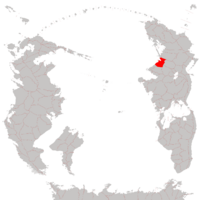 Map of Alcoalitania | |
| Capital | Cintralia (Pacifica) |
| Largest city | Cintralia (Pacifica) |
| Recognised national languages | C'ao, Austral |
| Religion | Islam, Christianity, Judaism |
| Demonym(s) | Coalitanian (s) Coalitanians (p) Coalitanian (adj.) |
| Government | Single-party democracy |
• President | Dawod Durant |
• Political Party | The Coalitanian Nationalist Party (Pacifica) |
• Single house | The People's Union Senate |
| History | |
• Established | 1890 |
• Division of Alcoalitania into two countries (East and West Alcoalitania) | 1750 - 1870 |
• Invasion of East Alcoalitania by West Alcoalitania | 1870 - 1890 |
• Reunification of Alcoalitania under the rule of the Price Family | 1890 - 1940 |
• Great Rebellion (Civil War) | 1940 - 1950 |
• Price Family is overthrown and Alcoalitania turns into a democracy | 1950 - present |
| Population | |
• 2024 estimate | 21,239,596 people |
• Density | 267.18/km2 (692.0/sq mi) |
| GDP (nominal) | estimate |
• Total | 2.14 trillion Coalitanian Dollars |
• Per capita | 52,938 Coalitanian Dollars |
| Gini | 19.8 low |
| HDI (2024) | 0.854 very high |
| Currency | Coalitanian Dollar (C$) |
| Time zone | UTC+2 |
| Mains electricity | Natanola Grid |
| Driving side | left |
| Calling code | +75 |
Alcoalitania, officially The Democratic Republic of Alcoalitania (or Lou Demokratic Republik snere Alcoalitania in C'ao) is a small wealthy nation located in western-central Bailtem. it is bordered by the South Pacific Ocean on the west. Most of its citizens live on the coastline, as well as the areas around The Central River (C'ao. Lou Cintral Rivaire). The country is known for its thriving tourism industry due to its majestic landscape and touristic spots. Alcoalitania is known for its wealth, totaling to around 2.14 trillion Coalitanian Dollars, with an average income of 52,938 Coalitanian Dollars. Coalitanians are taught C'ao in schools, and most citizens are fluent in the language. All legal documents, contracts, street signs, etc.. in Alcoalitania all are written in C'ao.
The Coalitanian government is run by a single party, The Coalitanian Nationalist Party (TCNP). The main political ideologies of the CNP are: Nationalism, Rightism, and Conservatism. The CNP is led by Dawod Durant, who is also the current president of Alcoalitania.
Alcoalitania is a unitary state that has no provinces. Alcoalitania houses around 21 million people, who get to enjoy the country's vast rainforests and humid areas. The country's landmass is miniscule, only adding up to around 79,586 km^2, with a population density of around 267.18 people per square kilometer. The Coalitanian environment is well known to be one of the best in Bailtem. Alcoalitania has one mountain range, the Great Mountains or Thu˩t Spu˩s in C'ao. These mountains contain an ethnic group of Alcoalitania called the Indigenous Highland People or Lou Indigeneus Spu˩ Bor˩lths (in C'ao).
History
The Empire
Ancient Alcoalitanian Empire
The Ancient Alcoalitanian Empire (officially known as The Alcoalitanian Empire) was the prehistoric predecessor of the Democratic Republic of Alcoalitania, and was the first ever sign of Coalitanian people, culture and tradition. The Ancient Alcoalitanian Empire was established in 1552 and lasted until 1700. (148 years)
The national language of the Ancient Alcoalitanian Empire is now commonly referred to as Ancient C'ao or Loakme (actual name). Ancient C'ao was the only national language in Alcoalitania at the time, unlike present day Alcoalitania who recognized Austral as a national language as well and started teaching it in schools. Loakme was one of the most complex, hard-to-learn languages in all of Bailtem, and was considered a sign of intelligence if fluent in the language.
Read more here: Ancient Alcoalitanian Empire (Pacifica)
Division of Alcoalitania into two countries 1750 - 1870
Previously, Alcoalitania was split up into two provinces, West and East Alcoalitania, which had very different political views and ideologies. This led to the division of the country.
During a pivotal juncture in Alcoalitania's history, the nation underwent a profound division, leading to the establishment of two distinct entities: West Alcoalitania and East Alcoalitania. This division arose due to the country having very different political views in all parts of the country, which led to an imbalance between western and eastern territories.
West Alcoalitania emerged as a dictatorship, with one leader. It was lead by the Price Family which ruled the country with an iron fist. West Alcoalitania had very low HDI, often not caring about the welfare of its citizens, but instead focused on defense against the eastern regime. This meant that West Alcoalitania was significantly stronger than the east in terms of defense forces and size of their militaries, while also having more land. The regime was largely fascist, which naturally made it way more disliked by other nations.
However, East Alcoalitania emerged as a democratic nation, with fair elections and the right to vote. East Alcoalitania was significantly richer than the west, but had less firepower. The east also had less land than the west, which made it even more vulnerable to invasions. The eastern regime was heavily anti-fascist, which meant that it received the support of many anti-fascist and democratic countries.
The division of Alcoalitania into West and East underscored the profound ideological and political cleavages that had long simmered beneath the surface of the nation. While West Alcoalitania embraced authoritarianism in the pursuit of stability and control, East Alcoalitania championed democracy and individual liberties. This schism, while reflective of internal divisions, also served as a catalyst for the redefinition of political identities and values within the nation. The contrasting trajectories pursued by West and East Alcoalitania would shape the course of their respective histories and leave an indelible mark on the collective consciousness of the nation.
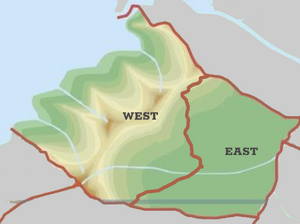
Invasion of East Alcoalitania 1870 - 1890
During the period from 1870 to 1890, the invasion of East Alcoalitania marked a bloody chapter in the nation's history, characterized by conflict and bloodshed. The ncident for this full-scale invasion occurred when the Chief of the Western Coalitanian Army, on a diplomatic visit to the eastern regime, was tortured by 19 East Alcoalitanian locals. In response, the Western Army launched a series of military campaigns, aiming to seize control of key territories in the east.
The initial stages of the invasion saw the Western Army remotely occupy strategic cities such as East Dholok, Botshkua, and Yok. However, their advance towards Eastern Alcoalitania's capital was met with heavy resistance, which ended in a month long siege of the city. Despite the Western Army's determination, the eastern defenders emerged victorious.
Subsequent attempts by the Western Army to penetrate deeper into East Alcoalitania's territory were met with similar outcomes, often ending in sieges and eventual losses. The resilience of the eastern defenders, coupled with support from allied nations opposed to the Western regime, resisted repeated invasion efforts. Despite facing setbacks, the Western Army persisted in their campaigns, eventually gaining control of the northeastern region of East Alcoalitania.
Following years of warfare and bloodshed, both sides signed a temporary peace treaty for the sake of their citizens. After the peace treaty was over (1980), the West Alcoalitanian Army invaded the east's capital, eventually gaining control and the East Alcoalitanian regime collapsing under the west's rule.
Reunification of Alcoalitania under the rule of the Price Family 1890 - 1940
The year 1890 witnessed the unification of Alcoalitania and the Price Family's control over the eastern territories, marking a dark chapter in the nation's history. With the consolidation of power, the Price Family's rule grew increasingly oppressive, characterized by fascist, communist, and authoritarian practices. Civil liberties were outlawed, dissent was ruthlessly suppressed, and religious freedom was non existent.
The implementation of these new laws and rules was a dark turning point in Alcoalitania's history, as the people were oppressed by the fascist regime. Most of the nation's people was living in poverty, with the highest-tech farming tools being a shovel and hoe. Around 56% of the nation's population was in absolute poverty. Suicides rose from 20,000 average a year, to around 90,000. The banning of religious texts angered the populace even more, which led to around 30,000 people illegally escaping West Alcoalitania in 1980.
Great Rebellion (Civil War)
The onset of the Great Rebellion in 1940 marked a turning point in Alcoalitania's history, as widespread civil unrest erupted across the nation. A wave of protests and demonstrations, fueled by grievances against the ruling regime, swept through the country, igniting a fierce struggle for liberation. Government buildings were targeted, military personnel were engaged in clashes, and acts of sabotage rocked the foundations of the state.
The government's brutal crackdown on dissent only served to inflame tensions further, as massacres and atrocities were committed against unarmed civilians. Amidst the chaos and bloodshed, the seeds of rebellion were sown, setting the stage for a protracted civil war that would shape the destiny of Alcoalitania for decades to come
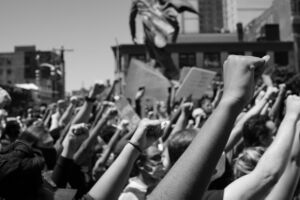
The rebellion happened in the capital city of Cintralia where citizens would march with their palms held high while shouting the phrase "Wu˩ ses labert!" which translates to "We are free!". During the rebellion, most soldiers, police officers and even government workers would often start rebelling with the citizens, which lead to around 65% of the government being on the rebellious side. The Price Family felt intense pressure after 5 of their members were taken and held hostage by the revolts, and eventually gave into the rebels' demands.
Collapse of the Price Family
The Price Family eventually fell which led to the death of 13 of their members, and the ejection of the rest out of the country. The rebellion was a major success to the Coalitanian people, and eventually led to the governmental officials that were on the rebellious side to govern the newly found unoppressive nation.
Transformation into a democracy
After the overthrowing of the Price Family, Alcoalitania later turned into a democratic safe haven which promotes Pacifism, nationalism, conservatism and rightism. A new president was elected (Jonah Kan) who significantly improved the country economically. The HDI of Alcoalitania increased from 0.368 to around 0.700 at this time, and the populace was significantly happier.
"Alcoalitania now, a beacon of freedom, peace and liberty, is a culturally and economically rich nation. " - President Jonah Kan in an interview conducted by a journalist in the year 1950
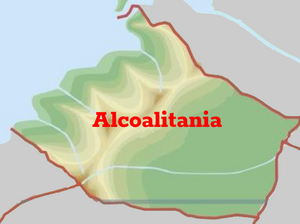
Etymology
The name "Alcoalitania" derives from the ancient C'ao (Loakme) word "coalitania" meaning "Coalition" and Al meaning "The". The name "The Coalition" came from a coalition started by the Price Family in a former nation that had previously occupied Coalitanian lands, which led to the formation of the country. The Coalition was a small country that kept invading others opposed to it, until it had expanded significantly. The Coalition was started in 1657, and resulted in the formation of Alcoalitania, which later divided and reunited again.
Geography
Cities

There are 11 cities in Alcoalitania, which include:
(no particular order)
- Cintralia
- Austral City
- East Pai'an
- West Pai'an
- Manat
- Botshkua
- Dholok
- East Dholok
- Ere˩s City
- North City
- Yok
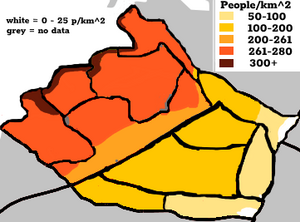
Cities in order of population:
| Rank | City | Population (Estimate) |
|---|---|---|
| 1 | Cintralia | 6 million people |
| 2 | Austral City | 3 million people |
| 3 | Botshkua | 3 million people |
| 4 | Manat | 2 million people |
| 5 | Ere˩s City | 1.6 million people |
| 6 | Yok | 1 million people |
| 7 | North City | 1 million people |
| 8 | Dholok | 1 million people |
| 9 | East Pai'an | 500K people |
| 10 | East Dholok | 500K people |
| 11 | West Pai'an | 400K people |
Climate
The climate of Alcoalitania is very diverse, ranging from AF (tropical rainforest climate) to CFA (subtropical humid) and DFA (continental template).
Weather
The weather in Alcoalitana is different in multiple regions.
In the western coastal regions, temperatures average to around above 18°C every month.
In the eastern regions, temperatures in the coldest month average around -3-0°C, while the hottest month around 22°C and most months around 10°C.
In the central regions, temperatures in the coldest month averaging above 0 °C, all months with average temperatures below 22 °C, and at least four months averaging above 10 °C.
The Central River

The Central River (C'ao. Lou Cintral Rivaire) is the main and only river in Alcoalitania. It is a major drinkable water source for the western and central regions of Alcoalitania. The areas around the river are heavily populated, and are filled with touristic spots due to the river's cleanliness and its sky-blue water.
Culture
The culture of Alcoalitania is a rich fabric woven with influences, shaped by centuries of history, traditions, and societal values. The Alcoalitanian culture is based on a blend of indigenous customs, regional practices, and outside influence, and is a unique blend of old and new, traditional and modern.
Language is a cornerstone of Coalitanian identity, and C’ao emerges as the primary language spoken by the community. Derived from the ancient C'ao word "c'aoge," meaning "language," C'ao is characterized by its distinctive phonology, syntax, and lexical nuances. As an important means of communication, the C’ao plays an important role in fostering cultural cohesion and fostering a sense of national pride among Confederates.
Religion has historically played an important role in shaping Coalitanian society, with diverse faith traditions coexisting within its borders. While religious freedom is enshrined in the law, the Price Family regime’s authority led to the suppression of religious practices deemed contrary to national opinion. Despite this, religious observance remains an important part of Covenant life, and temples, mosques, and churches are places of communal worship and spiritual reflection.
The food at Alcoalitania is a reflection of its cultural heritage, blending flavors, ingredients, and cooking techniques from different culinary traditions. Eating is often a communal affair, with families and friends gathering to share in the joy of sweet and savory food.
Music and dance occupy an important place in Coalitanian culture, and are expressions of joy, sorrow, and solidarity. Traditional rhythms, rhythmic strings, and soul vocals form the backbone of Coalitania’s musical heritage. Dances such as the dubka, characterized by intricate footwork and harmonious movements, are performed at weddings, festivals, and other celebrations, helping to bring communities together in collective expression in.
The art and architecture of Alcoalitania is a testament to the country’s rich cultural heritage, with landmarks such as Alcoalitania Cathedral and the Citadel of Cintralia standing as iconic symbols of its architectural genius. Intricate tile work, ornate columns, and tall minarets adorn the skyline, reflecting a mixture of Islamic and indigenous architectural styles. The visual arts thrive in Alcoalitania, with vibrant murals, intricate calligraphy, and evocative sculptures adorning public spaces, celebrating the country’s heritage and cultural diversity.
Literature and poetry occupy a revered place in Coalitanian culture, with writers and poets contributing to a rich literary tradition that spanned centuries. Works of poetry, prose, and philosophy explore themes of love, honor, and resistance, providing insight into the collective psyche of the Covenant people. The written word is a way to preserve cultural heritage, encourage intellectual discourse, and inspire future generations. Essentially, the culture of Alcoalitania is a mosaic of influences, experiences, and traditions, reflecting the resilience, creativity, and spirit of its people. From the bustling markets of Cintralia to the quiet beaches of East Dholok, Coalitanian culture thrives as a vibrant blanket of diversity, harmony, and resilience, weaving past, present, and future threads together in a timeless celebration of human expression and creativity .
Economy
Energy
Alcoalitania mainly remains on renewable energy (including solar energy, wind energy and ocean energy.).
Infrastructure
The infrastructure of Alcoalitania is considered one of the best, with railways, subway stations, etc... built all over the country. Public transport is heavily funded by the government, and citizens can travel around the country with ease.
There are train lines in-between all cities, which makes travelling around cities very easy and cheap.
Biggest industries
Alcoalitania is well known in the Tourism industry, Agriculture industry and the Renewable Energy industry.
| Rank | Industry |
|---|---|
| 1 | Tourism industry |
| 2 | Agriculture industry (beef) |
| 3 | Renewable Energy industry (solar energy, wind energy and ocean energy.) |
Politics
Government
Government of Alcoalitania
The government of Alcoalitania operates as a unitary single-party state, with the Coalitanian Nationalist Party (TCNP) holding a dominant position in political affairs.
Executive Branch
The executive branch of Alcoalitania is led by the President, who serves as both the head of state and the head of government. The President is elected by the People's Assembly and holds significant executive powers, including the authority to appoint key government officials and shape national policy.
Legislative Branch
The legislative branch of Alcoalitania consists of the People's Union Senate, a unicameral legislative body responsible for passing laws and regulations. Members of the Union Senate are elected through a combination of direct and indirect elections, with the TCNP maintaining a majority of seats.
Judicial Branch
The judicial branch of Alcoalitania is overseen by the Supreme Court, which serves as the highest court of law in the country. The Supreme Court is tasked with interpreting the constitution, adjudicating legal disputes, and ensuring the fair administration of justice.
Local Government
Alcoalitania is divided into administrative regions, each governed by a local council appointed by the central government. These councils are responsible for managing local affairs, implementing government policies, and representing the interests of their respective regions.
Political Structure
The political structure of Alcoalitania is characterized by the dominance of the TCNP, which espouses nationalist and right-wing principles. While the party maintains control over the government, opposition parties are allowed to exist within certain limits, providing a semblance of political pluralism.
Conclusion
In summary, the government of Alcoalitania operates as a single-party state with democratic elements, led by the President and the TCNP. While the country's political system allows for some degree of political participation, power ultimately resides with the ruling party, which shapes national policies and maintains control over the government apparatus.
Diplomatic Affairs
NOT AVAILABLE
The Coalitanian Nationalist Party
Main article: The Coalitanian Nationalist Party (Pacifica)
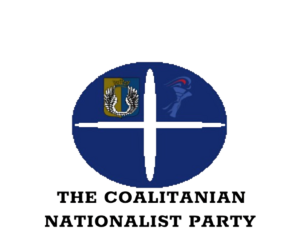
The Coalitanian Nationalist Party or TCNP/The CNP is the major and most influential political party in Alcoalitania.
Leader: Dawud Durant
Ideologies:
Conservatism
Nationalism
Rightism (far-right)
Meaning of logo: The CNP's logo is made up of 3 components. First is the blue eye, which stands for the clarity of the party's ideologies. The Coalitanian Coat of Arms represents nationalism and the patriotic nature of the Coalitanian people. The torch represents conservatism. (Conservative torch)
Military
Military size
| Type | Amount |
|---|---|
| Active Personnel | 87,384 (as of 2024) |
| Reserves | 345,305 (as of 2024) |
Military high ranking officials
| Name | Rank |
|---|---|
| Marcus Aurelius | Minister of Defense |
| Octavia Silva | Deputy Minister of Defense |
| Lucas Hartmann | Chief of Staff of the Army |
| Julia Valerius | Vice Chief of Staff of the Army |
| Maximilian Schmidt | Inspector of the Army |
| Flavia Antonia | Inspector General |
| Gabriel Smith | Director of Army Staff |
| Aurelia Lucilla | Sergeant Major of the Army |
Military achievements
East and West Alcoalitanian War - Western Victory
Great Rebellion - New rebellious army and the people victorious
Total amount of reserves reacing 300,000 personnel. (2022)

